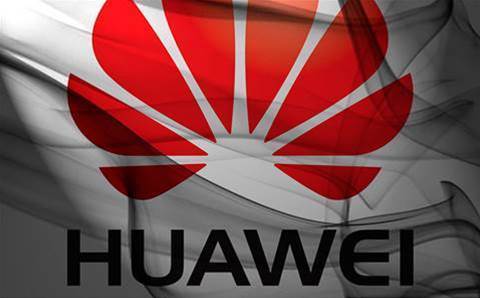Australia will see the debut of 5G networks during 2019, but cutover certainly won’t be painless: 5G coverage won’t be extensive, handsets may not be plentiful, regional areas won’t be included in the early years and IoT applications won’t arrive in a rush.

That’s the collective opinion of Ovum analyst David Kennedy, Vodafone’s general manager of access networks Tom Joynson and Optus’ head of mobile network deployment Lambo Kanagaratnam, who spoke at Huawei’s A/NZ partner convention.
Kennedy said 5G handsets are not expected to appear in the first half of 2019 and that subscriptions will "really take off" once Apple and Samsung offer 5G-ready phones in 2020.
Joynson said that network outages will be an all-but-inevitable consequence of upgrading from 4G to 5G.
“We have a live network and we need to keep that network up,” he said, adding that “the sites we need to upgrade first have massive usage,” Joynson said.
“You take down one of those sites for a day and it has a huge impact. I think that is going to be one of the complications, how the outage looks and how we protect our customers through that.”
He also said that past experience of network rollouts produced many issues regarding electromagnetic energy (EME), necessitating fine-tuning of networks.
Joynson thinks a repeat is likely and that carriers will need to improve the way they manage the issue because multiple re-tests can be “death by a thousand cuts”.
Kanagaratnam said early 5G kit won’t be small or efficient and that will cause problems installing it on base stations and finding enough power to make the equipment work.
“It (implementation) is not going to be straightforward,” he said.
Both carrier executives also said that 5G networks will need more base stations because of spectrum issues and the nature of 5G. Network “densification” will be the result as 5G has long been predicted to use micro-cells. While network designs take that into account, he predicted those plans won’t always deliver.
Kanagaratnam offered that initial deployments won’t be broad; rather they will concentrate on areas with proven demand.
“It is getting really tough to where you can put these sites,” added Optus’ Kanagaratnam.
.
“On big macro sites it will be tough and I think it will come down to the relationships we have with our landlords and our sites.”
Relationships with local and state authorities will also be important, because the need for more cells also means a need for more civil works to deliver power and backhaul.
Approvals for such efforts always take time and effort, but even if they flow swiftly it won’t be much help to rural and regional users.
Both executives said they’re actively discussing how to expand their networks for 5G in Australia’s major cities, but that rural and regional implementations can’t be expected for two years in a best case scenario because the business case for such deployments is hard to make.
Will someone think of the partners?
The convention also saw Huawei Australia director John Brumby point out that Huawei’s channel wins over $200 million of downstream business a year from its association with the Chinese company.
The former Victorian Premier combined that observation with another that Australia deserves a vigorous, competitive, 5G equipment market to ensure locals can access the best technology at a decent price.
Brumby’s speech therefore came across as a suggestion that excluding Huawei from 5G builds would shoot Australia in the foot by harming small business.
He added, however, that Huawei feels it has had a fair hearing in Canberra and is confident in the assessment process.
However Brumby would not speculate on what exclusion from 5G would mean for Huawei, or for the prospects of the enterprise hardware business it aspires to greatly expand in Australia.
Nor would Brumby or Huawei Australia CEO George Huang comment on how Australia’s proposed encryption-avoidance laws would impact the company, on grounds that they’ve not had time to properly assess the exposure draft.
Huang did, however, say that Huawei always complies with local laws.
Asked if the encryption law’s requirement that offshore entities comply with Australian low, he said Huawei has never found itself in a situation where Chinese and Australian laws are in conflict and it must choose to follow one or the other.


_(33).jpg&h=140&w=231&c=1&s=0)
_(28).jpg&h=140&w=231&c=1&s=0)
.png&h=140&w=231&c=1&s=0)






 iTnews Executive Retreat - Security Leaders Edition
iTnews Executive Retreat - Security Leaders Edition
 iTnews Benchmark Awards 2026
iTnews Benchmark Awards 2026
 iTnews Cloud Covered Breakfast Summit
iTnews Cloud Covered Breakfast Summit
 The 2026 iAwards
The 2026 iAwards











_(1).jpg&h=140&w=231&c=1&s=0)



